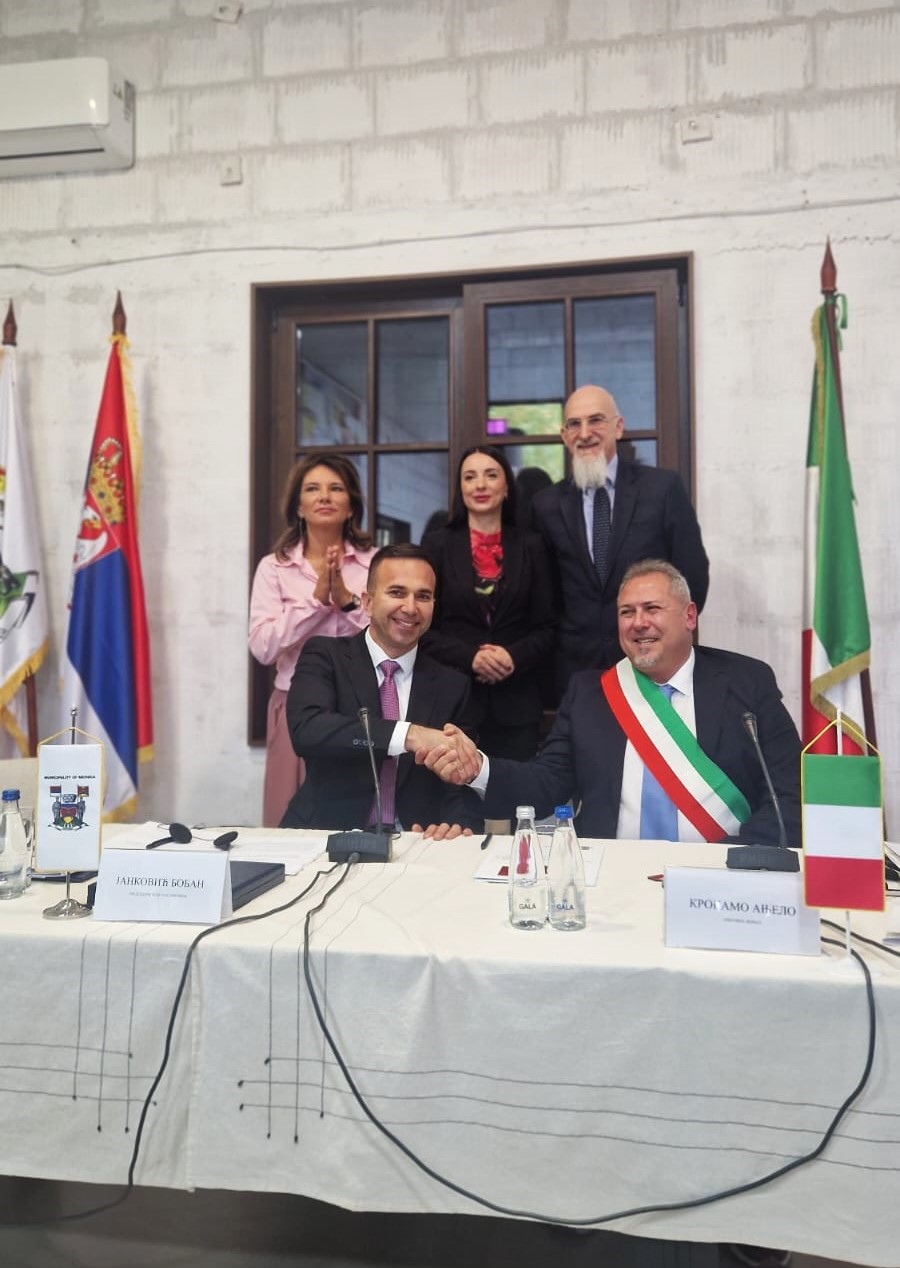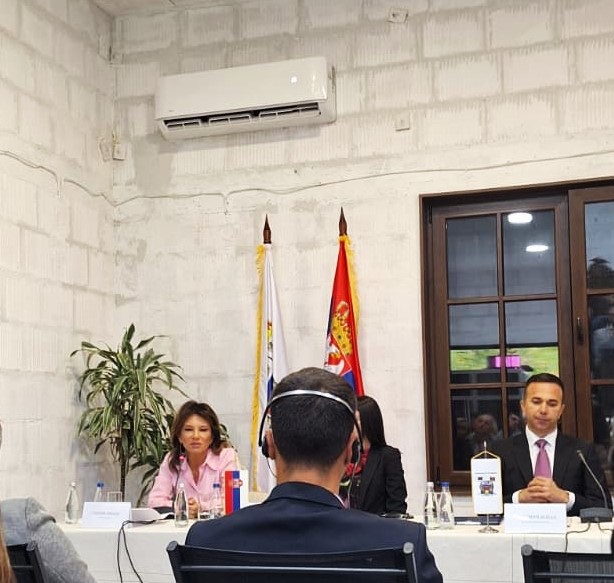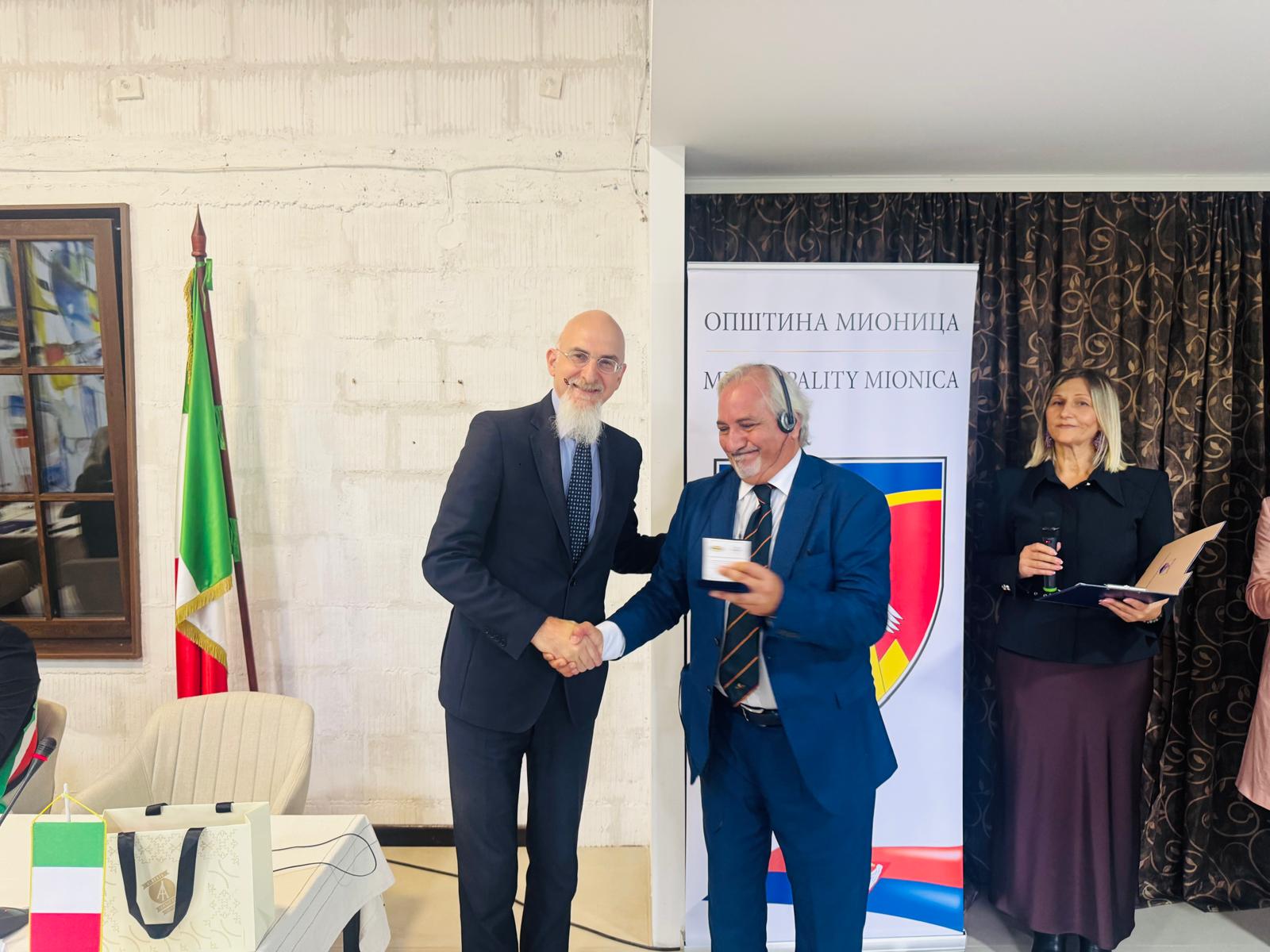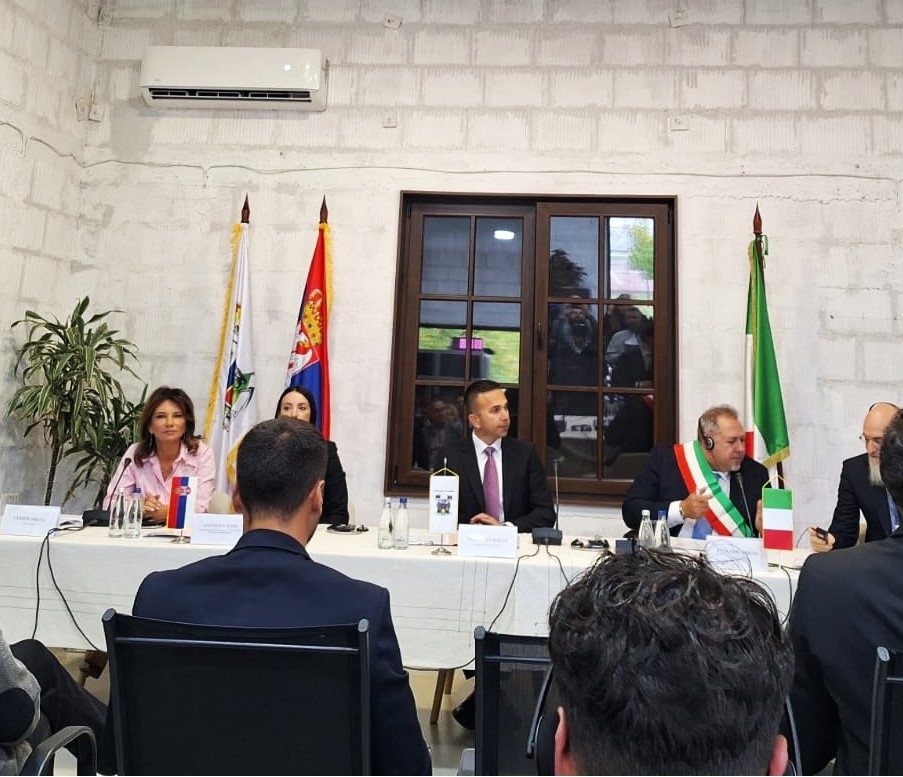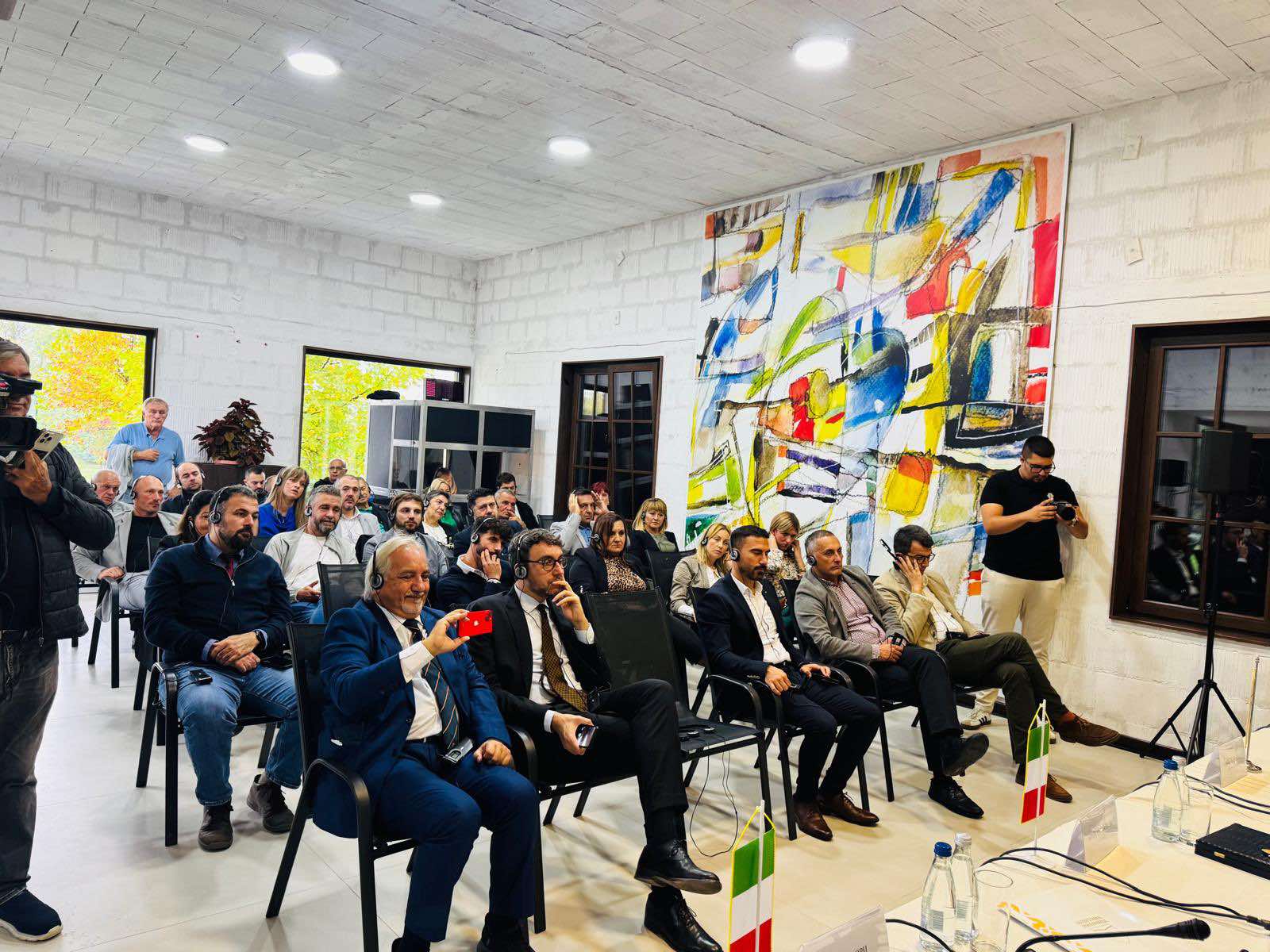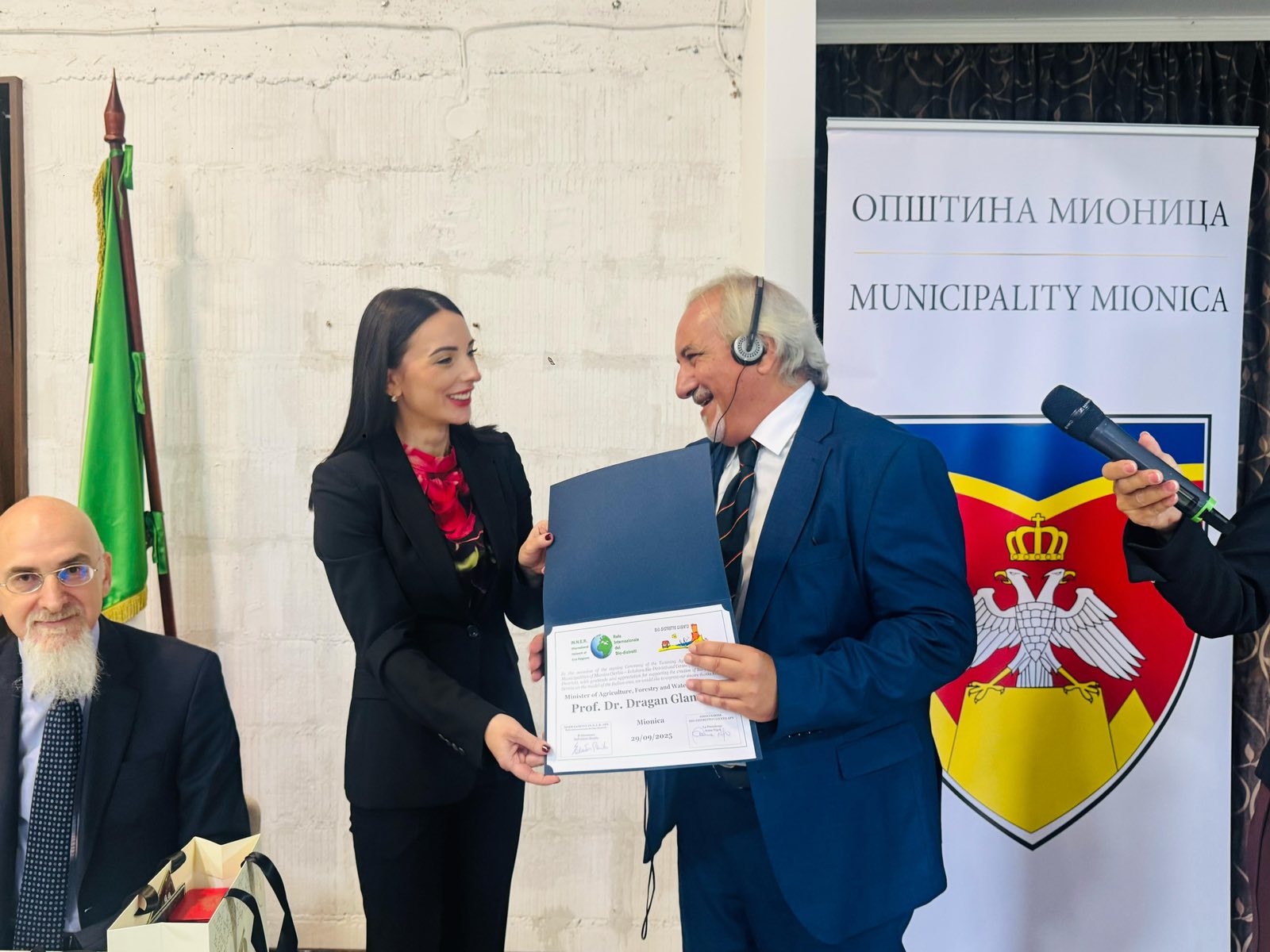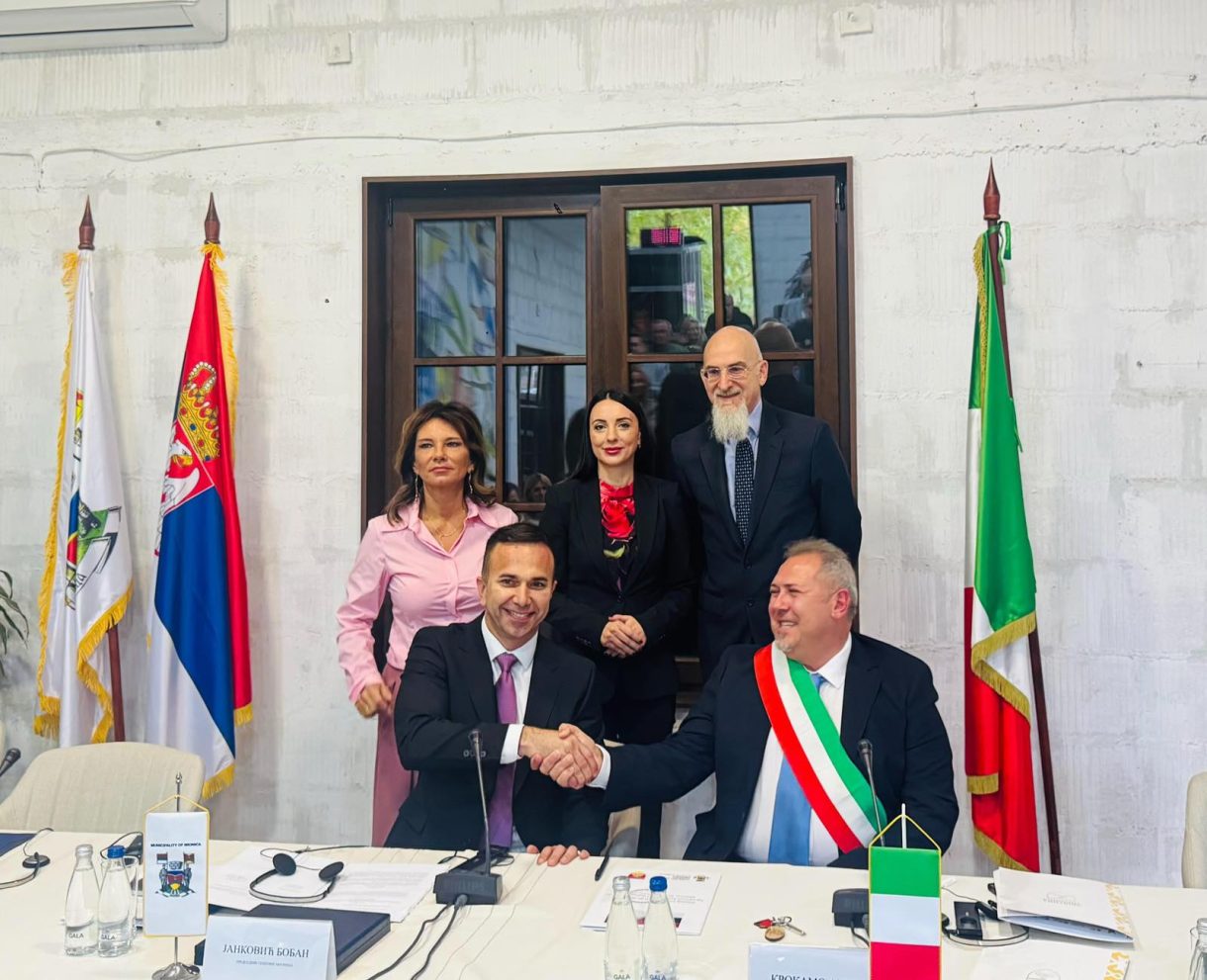Serbia and Italy built a new bridge based on the values of the Bio-district
The municipality of Mionica, where the first biodistrict in Serbia and the region began to emerge in 2023, and the municipality of Ceraso in Italy, home of the first registered biodistrict in Italy – the Cilento Biodistrict -have officially twin-partnered during a ceremony held on September 29th in Mionica.
The idea of this twinning originated from Serbia Organica, the organization that initiated the establishment of the Kolubara Biodistrict and forged a partnership with the Cilento Biodistrict and the International Network of Eco-Regions (IN.N.E.R.), based in Milan, founded on shared values and principles.The process of establishing the Kolubara Biodistrict was supported by an IN. N.E. R consultant Dr. Juan Pablo Sciurano from Argentina.
The initiative was inspired by the visit of the Serbian delegation to Cilento in April 2025, organized by Serbia Organica with the support of FAO. This visit provided an opportunity for direct exchange of experiences, which laid the groundwork for defining the future direction of cooperation. This twinning is thus rooted in the recognition of shared values that both communities not only uphold but actively develop – such as respect for tradition and heritage, a sustainable approach to development, and a strong role of the local community in preserving identity and nature.It is precisely this mutual closeness that has encouraged the desire to further advance and spread these values through cooperation, exchange of experiences and joint activities and ideas.
On this occasion, Boban Janković, Mayor of Mionica, emphasized that the local government strongly supports organic production and initiatives of this kind.
Angelo Croccamo, Mayor of Ceraso, recalled that the first biodistrict in Europe was founded precisely in their municipality, in Cilento:”A biodistrict is not just an agricultural model – it’s a way of life. It connects people with the land, preserves tradition, and offers a healthier future. The fact that we are twinning today with Serbia and Mionica shows that our shared journey has deep meaning.”
Special support was also expressed by Dr. Salvatore Basile, President of the International Network of Eco-Regions (IN.N.E.R.):“Serbia is one of the first countries in the region to adopt the concept of biodistricts. I believe that Italy’s experience will be a valuable foundation for your future development. The emergence of new biodistricts in Serbia will be further proof that this model has the power to transform entire communities.”
Ivana Simić from Serbia Organica presented the pioneering path -from the initial idea of founding the first biodistrict in Serbia and the region (initiated by Serbia Organica) to its successful realization:”Today, the Kolubara Biodistrict is not only a pioneering initiative, but also a model of success – in Serbia and in the region. It shows that biodistricts can contribute to environmental protection, preservation of natural resources, strengthening of the local economy, and improving the quality of life in rural areas. And most importantly, they help raise awareness among children and youth on these important topics through their direct engagement.”She added: “We are confident that our roadmap can become an inspiration and guide for the development of future biodistricts in Serbia, the region, and beyond. The achievements made so far clearly show that this approach is sustainable and offers multiple benefits – for producers and for the entire community.”
The ceremony was further honored by the presence of H.E. Luca Gori, Ambassador of Italy to Serbia, who stated:”This twinning between Mionica and Ceraso is yet another testament to the strong friendship between Italy and Serbia. It marks a step toward deeper cooperation in the fields of organic agriculture and sustainable development. The fact that Serbia is recognizing and adopting this model is proof that we share the same vision – one of responsibility toward nature and future generations.”
Jelena Blagojević, State Secretary at the Ministry of Agriculture, Forestry and Water Management of Serbia, emphasized that the government has recognized the importance of organic production, and that this model represents a foundation for the future of rural development:”I would especially like to thank Serbia Organica for recognizing and promoting the concept of biodistricts in our country. The establishment of the Kolubara Biodistrict in 2024 is one of the most important steps Serbia has taken toward integrating sustainable practices in agriculture and rural development. This is not just a local initiative, but a vision that connects people, nature, and tradition into a unique model of development.”
